Shoppers with reward cards see little point in loyalty
- Published

Supermarkets are among the most high-profile suppliers of loyalty cards
Dressed in baggy jogging bottoms and a white vest, with headphones thrown around his neck, a young man collects a coffee from the self-service machine, completes a lap of the store, buys nothing, and walks out.
He is a Waitrose loyalty card carrier making the most of the free hot drink offer.
Not the image of stereotypical Waitrose clientele perhaps, but certainly typical of the new breed of "promiscuous" customer who tours various stores for a good deal.
So, will his apparent disloyalty by shopping around lead to the end of loyalty cards - which reward shoppers who spend plenty and regularly in the same supermarket?
This month, Sainsbury's is halving the reward points available to Nectar card holders. Some of the increasingly successful chains do not bother with a loyalty card at all.
But some experts argue that reports of the loyalty card's death are greatly exaggerated. Instead, they expect a rebirth, from purse-clogging plastic cards to a digital format with some entertainment value. Also, the data they hold might even help protect our environment.
Long-time loyalty
Loyalty points, or trading stamps, have been around for decades. Among the best remembered are Green Shield Stamps. Lick and stick the stamps in a saver book and choose anything from a mouth organ to a motor boat from the catalogue.
The modern-day loyalty card was born in 1995 with the hugely successful Tesco Clubcard.
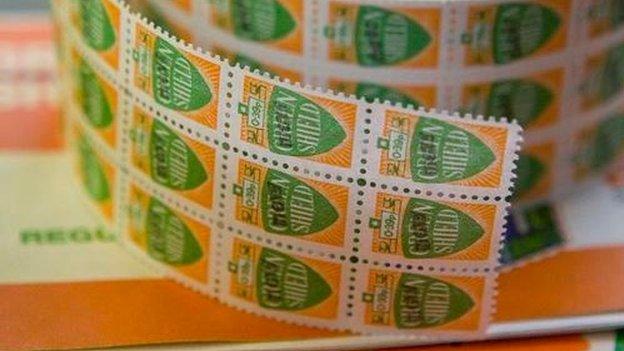
Green Shield Stamps - collect 33 books for a Kenwood Chef
It was launched after the brains behind the concept - Edwina Dunn and her husband Clive Humby - gave a presentation to the Tesco board, explaining how they could analyse data to work out the spending patterns of customers.
The reaction of the Tesco chairman of the time, Lord MacLaurin, was to say: "What scares me about this is that you know more about my customers after three months than I know after 30 years".
The modern loyalty card works with a simple trade. By handing over their card at each shop, the consumer agrees to give the retailer access to useful data - including their age, when they shop, what they buy and how often. Such detail is key for cutting costs and maximising revenue in distribution and promotion.
In return, the shopper gets discounts and special offers.

International comparisons

Aimia - the company that runs the Nectar card - claims:
Supermarkets garner the highest level of consumer loyalty, followed by banks, and mobile phone providers.
A fifth of cardholders have closed accounts owing to data concerns.
About a half of shoppers asked in a survey were willing to share information for rewards and discounts.
That ranges from 74% among shoppers in India, to 39% in Germany. In the UK, 48% were happy to do so.

'Death of the weekly shop'
After the Tesco Clubcard came the Nectar card, which can be used across a variety of outlets, followed by a plethora of others, including the widely used Boots Advantage card.
In fact, within 100 yards of the aforementioned Waitrose store, shoppers can pick up at least three other branded loyalty cards.
But do they attract extra custom?
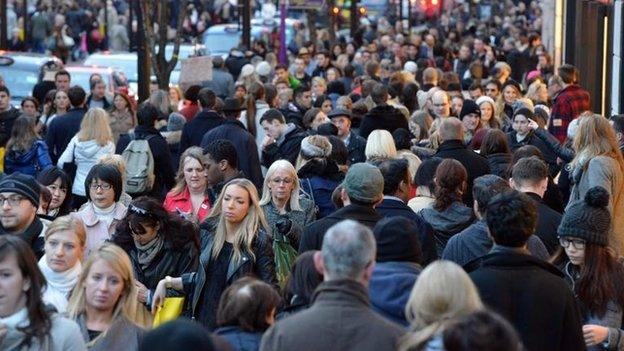
The data held on loyalty cards is rich with information about shopping habits
A completely unscientific survey, conducted from a cafe opposite, revealed that more than half of those exiting the Waitrose store with a takeaway cup had not bought anything from the store - each representing a financial loss for the supermarket.
Waitrose recently changed the deal that had seen it give away a million cups of tea and coffee a week. Cardholders drinking their free brew at the in-store cafe must now buy a "treat" too.
Meanwhile, from 11 April, Sainsbury's will award Nectar cardholders one point, not two, for every £1 spent.
'Promiscuous'
This, according to retail analyst Natalie Berg of Planet Retail, is a response to the threat from discount chains such as Aldi and Lidl. Price is more important than loyalty.
"Consumers today are promiscuous; they shop around for the best deals," she says in her blog, external.
"They often visit more than one supermarket on the same day and increasingly this involves a trip to the discounters. So, the idea of being loyal to a particular grocer is a thing of the past. People no longer think of themselves as an Asda shopper or a Tesco shopper.
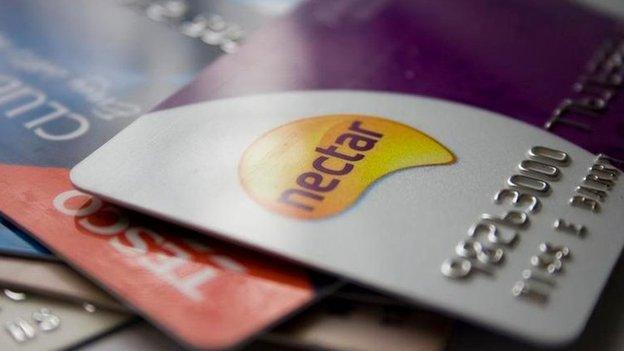
The Nectar card rewards scheme is just about to change
"They are buying little, often and across a multitude of supermarket brands. Cue the death of the weekly shop and supermarket loyalty."
She says that loyalty cards, which are expensive to run, add an extra layer of complexity for shoppers who just want bargain prices.
David Black, of analysts Consumer Intelligence, says that it is only really worth customers getting a loyalty card if they are shopping in the store anyway. Comparing prices across different outlets, then buying at the cheapest, is the better money-saving option.
"Loyalty cards make an awful lot of sense for the retailers, but they are less attractive for card carriers," he says.
Will they survive?
So does this spell the end for loyalty cards?
Their demise has been predicted for a long time. A news story on the BBC News website in 1999, external was headlined "Loyalty cards losing appeal", reporting that researchers had found "a third of people preferred low prices to points or other incentives".
But Annich McIntosh, editor of Loyalty Magazine, says that whatever the disloyalty of the price-savvy consumer then and now, rewards schemes are here to stay.
She points to airlines and hotels where loyalty schemes, such as air miles, have been vital for profitability. Many women, she adds, have an "emotional engagement" with their Boots card.

Airline loyalty schemes have been offered for many years
What does that mean? Many customers save up their Boots reward points, she says, then use them to get a luxury beauty product to spoil themselves - something that they would not otherwise have bought.
That tends not to be the case with mildly annoying supermarket cards, with complex rules on redeeming points.
"Supermarkets rested on their laurels for a while. They have been taken by surprise by the budget stores," says Ms McIntosh.
Paperless loyalty
Supermarkets still need that useful data, she says. Morrisons launched its own loyalty card scheme in October last year. Even the discount stores need data, although they buy it in from consumer research companies, rather than harvest their own from loyalty cards.
Ms McIntosh says that these cards need to become more relevant by personalising offers, rather than just rewarding bulk spending, and by embracing new technology.
It is logical to predict that instead of shoppers handing over a plastic card at the till, their smartphones will recognise they are in the store and ping over an electronic voucher for their favourite brand of tea.
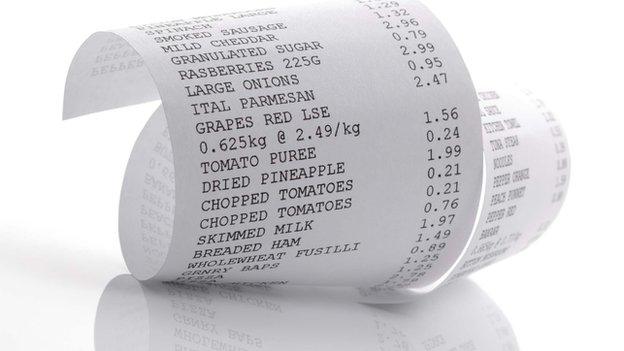
Shoppers are paying attention to price, but analysis of their habits can help society
A big area of growth is the use of games on smartphones to encourage young consumers to share vital shopping data.
"If you want to know from teenagers what their most-wanted item of clothing is, then engage them with a game. It really is very popular among consumers who won't be wowed with 10p off their shop," says Ms McIntosh.
Social responsibility
Some academics argue that the end of loyalty cards would also mean the end of a rich collection of data that can be used to benefit society.
These cards provide specific detail on spending habits - highlighting the difference between what people say they do and their actual behaviour.
Professor Mark Birkin, from the University of Leeds and director of the Consumer Data Research Centre, points to the example of health and nutrition.
The consumption patterns revealed through loyalty card data may reveal how truthful consumers are about their (un)healthy eating habits.
His centre has deals with some supermarkets which provide anonymous spending data for specific research.
So, the next time city planners consider where to build roads based on travel patterns, where to target health awareness based on eating habits, and how to protect the local environment based on packaging rubbish, the chances are that the information on that plastic loyalty card found in your purse or wallet will help to inform their decisions.
- Published8 January 2015
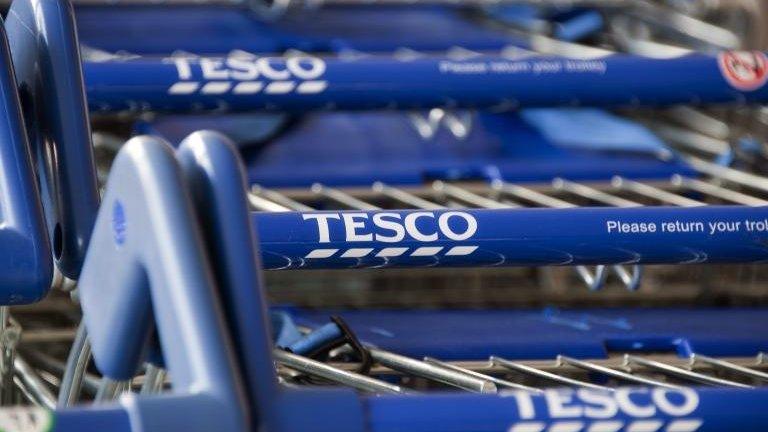
- Published24 November 2014
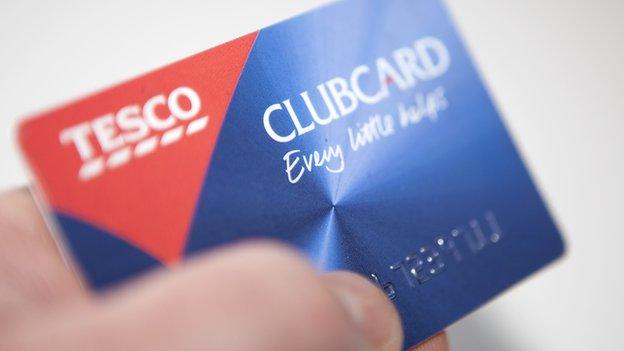
- Published21 March 2014
.jpg)